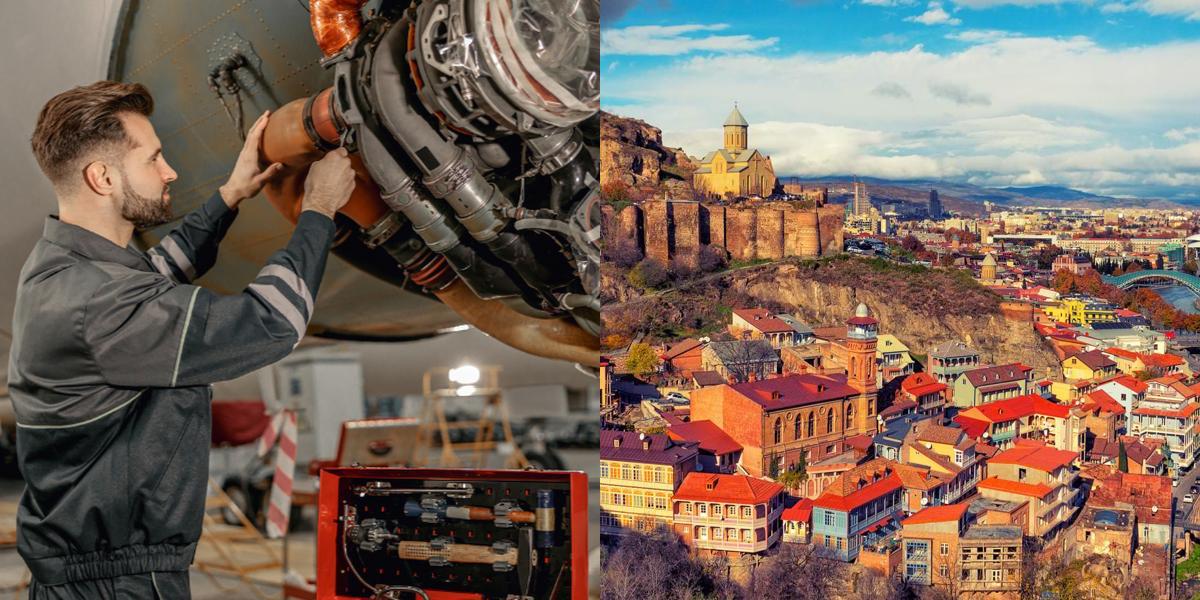How to Become an Aviation Mechanic in Georgia

Aviation mechanics, also known as aircraft mechanics or aviation maintenance technicians, are responsible for ensuring the safety and proper functioning of aircraft. They perform routine inspections, diagnose and repair mechanical issues, and conduct regular maintenance to keep aircraft in optimal condition.
As an aviation mechanic, your responsibilities may include:
- Conducting inspections of aircraft systems, such as engines, landing gear, and hydraulic systems.
- Identifying and troubleshooting mechanical issues and performing necessary repairs.
- Conducting routine maintenance tasks, including oil changes, tire rotations, and component replacements.
- Testing aircraft systems to ensure they meet safety and performance standards.
- Keeping detailed records of maintenance and repairs performed.
Step 4: Apply for Jobs
Once you have identified job openings that align with your skills and experience, it's time to apply. Tailor your resume and cover letter to each specific job, highlighting the qualifications and experiences that make you a strong candidate. Follow the application instructions provided by each employer and submit your application materials accordingly.
Step 5: Prepare for Interviews
If your application is selected for further consideration, you may be asked to participate in an interview. Prepare for interviews by researching the company, practicing common interview questions, and rehearsing your responses. Be prepared to discuss your experience, skills, and why you are interested in the position.
Step 6: Continue Learning and Growing
The aviation industry is constantly evolving, and it's important to stay current with the latest technologies and industry trends. Consider pursuing additional certifications or specialized training to enhance your skills and make yourself more marketable to employers. Continuing education and professional development can also help you advance in your career and qualify for higher-level positions.
Career Paths and Opportunities after Becoming an Aviation Mechanic
After becoming an Aviation Mechanic, there are several career paths and opportunities you can pursue. Some of these include:
Aircraft Maintenance Technician
As an Aircraft Maintenance Technician, you will be responsible for performing routine maintenance, inspections, and repairs on aircraft. This may include troubleshooting mechanical and electrical issues, replacing parts, and ensuring compliance with safety regulations. Aircraft Maintenance Technicians can work for airlines, maintenance facilities, or private aviation companies.
Quality Control Inspector
Quality Control Inspectors play a crucial role in ensuring that aircraft maintenance and repairs are done properly and in compliance with safety regulations. They perform detailed inspections and tests on aircraft systems, components, and repairs to verify their quality and airworthiness. Quality Control Inspectors may work for airlines, maintenance facilities, or regulatory agencies.
Avionics Technician
Avionics Technicians specialize in the electrical and electronic systems of aircraft. They install, troubleshoot, and repair avionics systems, such as communications, navigation, and flight control systems. Avionics Technicians can work for airlines, avionics manufacturers, or maintenance facilities.
Aircraft Inspector
Aircraft Inspectors are responsible for conducting thorough inspections of aircraft to ensure they meet safety and regulatory standards. They examine aircraft structures, systems, and components for signs of wear, damage, or defects. Aircraft Inspectors can work for airlines, maintenance facilities, or regulatory agencies.
Aircraft Manufacturing
Another career path for Aviation Mechanics is aircraft manufacturing. In this role, you would be involved in the assembly, installation, and testing of aircraft components and systems. Aircraft manufacturing jobs can be found with aircraft manufacturers, aerospace companies, and defense contractors.
Final Thoughts
Becoming an Aviation Mechanic is a rewarding and in-demand career choice for those interested in working with aircraft. By following the steps outlined in this guide, you can obtain your Aviation Mechanic certification and start your journey in this exciting field. Remember to continue learning and growing in your career to stay up-to-date with industry trends and technology. Good luck on your path to becoming an Aviation Mechanic!
If you're considering a career shift or curious about different professional paths, Dreambound has written many guides to help you in making informed decisions. Here are a few:

Joanna Paragas is part of the Growth team at Dreambound. Her primary role involves creating various automation to streamline workflows and make tasks more efficient for the entire team. Beyond her professional endeavors, Joanna enjoys spending her free time playing with her dogs and enhancing her knowledge by enrolling in online courses.





